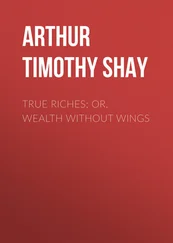Aside from these notions about his Muse, Daniel was not, in general, a superstitious sort, but he was fast becoming a Christian, at least in the latter-day sense of the word as set forth in the teachings of Reverend Jack Van Dyke. According to Van Dyke, all Christians got to be that way by suspending their disbelief in a preposterous but highly improving fairy tale. This presented no difficulties to Daniel, who took naturally to pretending. His whole life these days was a game of make-believe. He pretended to be black. He had pretended, for one whole year, to be passionately in love with a eunuch. Sometimes he and Mrs. Schiff would pretend for hours at a time to be honeybunnies. Why not pretend to be a Christian? (Especially if it brought in, theoretically, a hundred bucks a week and, more to the point, a chance to perform in physical and social dimensions that suited the size of his voice and his art, which Marble Collegiate did to a tee). Why not say he was saved, if it might make someone else happy and did him no harm? Wasn’t that all most priests and ministers do? He’d never been the type, when people asked how he was feeling and he was feeling rotten, to say he felt rotten. He said he felt swell, and smiled, and he expected others to do the same. That was simply civilization, and so far as he could see, Christianity was just the logical outcome of such principles, the most devious and effective way ever discovered of being polite.
Mrs. Schiff, an old-fashioned atheist, didn’t approve of his conversion, as he styled it, and they had some of their most enjoyable arguments on this topic. She said it wasn’t intellectually self-respecting to say you believed (for instance) that someone could die and then return to life, which was what Christianity boiled down to. It was all right for people who really did believe such nonsense to say so; it was even good that they did, since it gave one fair warning as to the limits of their rationality. But in Daniel it was charlatanry pure and simple. Daniel replied that nothing was pure and simple, least of all himself.
Once, when Mrs. Schiff had been dead-certain about a fact of music history (Had Schumann written a violin concerto?), he made a wager with her, the forfeit of which was that she must accompany him to Marble Collegiate on a Sunday of his choosing. She was wrong. He chose a Sunday when Van Dyke was to preach on the immortality of the soul, and Daniel would be singing in Bach’s Actus Tragicus . It was not, as it turned out, one of Van Dyke’s best efforts, and the choir as well (including, alas, Daniel) had bitten off rather more than it could chew. Mrs. Schiff was commiserating, but otherwise unmoved.
“Of course,” she conceded, “one must be grateful to churches for providing free concerts this way, but it does smack a little of the soup kitchen, doesn’t it? One has to sit there for the sermon and the rest of it for the sake of a very little music.”
“But that isn’t the point,” Daniel insisted, somewhat testily, for he was still smarting from the mess he’d made of “ Bestellet dein Haus .” “People don’t go to church for the sake of the music. They go there to be with the other people who go there. Being physically present, that’s the crucial thing.”
“Do you mean that it’s a kind of proof that there is a community and they’re part of it? I should think a concert would do that just as well, or better, since one can talk in the intervals. And the music, if you’ll forgive my saying so, would probably be a touch more professional.”
“I stank, I know that, but my singing, good or bad, is irrelevant.”
“Oh, you weren’t the worst offender. Far from it. You’re learning to fake the notes you can’t reach very ably. But what is the point, Daniel? In a word.”
“In a word, hope.”
“Well then, in a few words.”
“What was the cantata about? Death. The fact that that is what’s in store for all of us, and that there’s no way round it, and we all know there’s no way round it.”
“Your Mr. Van Dyke maintains differently.”
“And so did you, just by being there. That’s the point. Everyone has doubts. Everyone despairs. But when you’re there in church, surrounded by all those other people, it’s hard not to believe that some of them don’t believe something . And by our being there we’re helping them believe it.”
“But what if all of them are thinking the same as us? What if none of them are bamboozled and are just offering their moral support to others, who similarly aren’t bamboozled?”
“It’s a matter of degree. Even I’m bamboozled, as you say, a little. Even you are, if not in church, then when you’re listening to music, and even more when you’re writing your own. What’s the difference, ultimately, between Bunny Honeybunny’s song and Bach’s saying, ‘Come, sweet hour of death, for my soul is fed with honey from the mouth of the lion’?”
“The chief difference is that Bach’s is immeasurably greater music. But I should say another difference is that my tongue is firmly in my cheek concerning the philosophic views of honeybunnies.”
“Your tongue isn’t entirely in your cheek, though, and perhaps Bach’s isn’t completely out of his. He has ambiguous moments.”
“But he knows, he says, that his Redeemer liveth. ‘Ich weiss,’ sagt Bach, ‘dass mein Erloser lebt.’ And I know that mine doesn’t.”
“So you say.”
“And what do you say, Daniel Weinreb?”
“More or less the same as you, I suppose. But I sing something else.”
It was the night before Christmas, and the night before the night before Daniel was to appear in the Off-Broadway première of Honeybunny Time . Dreams, it seems, really do come true. But he was not happy, and it was hard to explain to Boa, who was the underlying cause of this unhappiness, why this should be so. There she sat, propped up in her little cot, a Christmas angel complete with a halo and a pair of wings from Mrs. Galamian’s stock of costumes for the first-act dream-ballet that had been scrapped during the last week of rehearsals. Yet the problem was easily stated. He was broke, and while his prospects had never been brighter, his income had rarely been less. He’d had to leave the Metastasio two months ago, time enough to exhaust the little money he’d put away to tide him through an emergency. But this was the one emergency he hadn’t reckoned with — success. Rey and Tauber were both adament as to receiving their full cuts. Daniel had done the arithmetic, and even if Honeybunny Time didn’t just fizzle right out, Daniel’s net earnings from it would still fall short of what was required at the heady rate of some three hundred dollars a month. And if the show were a smash, he wouldn’t do any better, since he’d had to sign over his interest in the book for the chance to play Bunny. That, as Irwin Tauber had explained, was show business. But try and explain that to a corpse.
“Boa,” he said, touching one of the nylon wings. But he didn’t know where to go from there. To talk to her at all was an admission of faith, and he didn’t want to believe, anymore, that she might be alive, and listening, and biding her time. If she were, it was cruel of her not to return. If she weren’t, if she’d left this world forever, as she’d left this husk of herself, this disposable container, then there could be no harm in his ceasing to care for it as well. “Boa, I’m not giving up another fifteen years. And I’m not going to peddle my ass again. I suppose I could ask Freddie Carshalton to loan me something, but I’m not going to. Or Shelly Gaines, who probably doesn’t have it to spare. What I am going to do is I’m going to call your father. If that’s wrong, then I’ll just have to bear the guilt. Okay?”
Читать дальше












